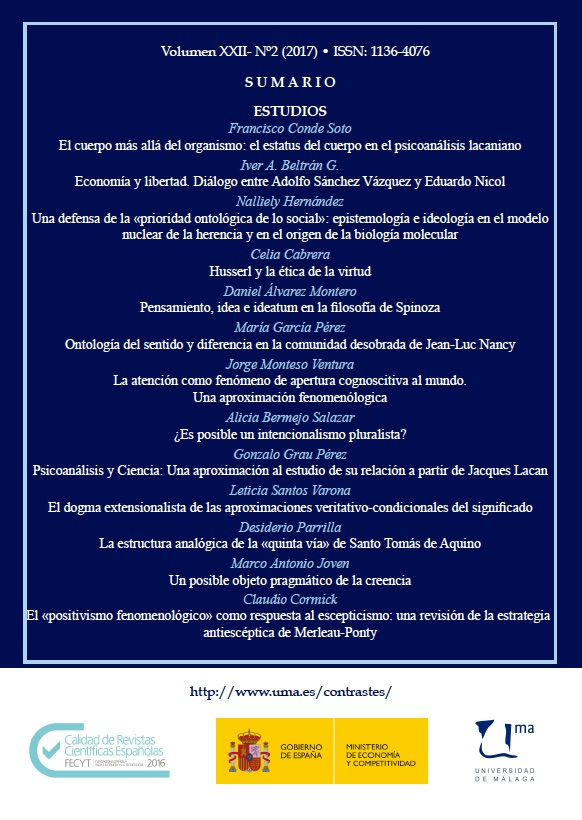Is pluralistic intentionalism possible?
DOI:
https://doi.org/10.24310/Contrastescontrastes.v22i2.3526Keywords:
Intentionalism, Pluralism, Interpretation, Intention, MeaningAbstract
In contemporary discussions, one of the main arguments adduced against intentionalism is its supposed incompatibility with interpretative pluralism, due to its monist nature. In this paper I will discus the scope of R. Stecker’s attempt to make monism and pluralism compatible and G. Currie’s pluralist intentionalism. Finally, I will try to show what special kind of pluralism could be endorsed by intentionalism without needing to abandon its concept of art and its idea of artistic interpretation.Downloads
Metrics
Publication Facts
Reviewer profiles N/A
Author statements
Indexed in
-
—
- Academic society
- N/A
- Publisher
- Universidad de Málaga
References
Alicia Bermejo Salar es doctora en Filosofía por la Universidad de Murcia.
Líneas de Investigación:
Estética y Filosofía del Lenguaje
Publicaciones recientes:
“Is Moderate Intentionalism Necessary?”, en Proceedings of the Conference 2014 de la
European Society for Aesthetics, http://www.eurosa.org/volume-6/
“The Analogy between Arstistic and Linguistic Meaning: The Linguistic Model of Intentionalism
Revisited” en Proceedings of the Conference 2013 de la European Society for Aesthetics,
Downloads
Published
How to Cite
Issue
Section
License
This journal provides immediate free access to its content under the principle of making research freely available to the public. All content published in Contrastes. Revista Internacional de Filosofía, are subject to the Creative Commons Attribution-NonCommercial-ShareAlike 4.0 license whose full text can be found at <http://creativecommons.org/licenses/by-nc-sa/4.0>
It is the responsibility of the authors to obtain the necessary permissions of the images that are subject to copyright.
Authors whose contributions are accepted for publication in this journal will retain the non-exclusive right to use their contributions for academic, research and educational purposes, including self-archiving or repository in open access repositories of any kind.
The electronic edition of this magazine is edited by the Editorial Service of the University of Malaga (Uma Editorial), being necessary to cite the origin in any partial or total reproduction.










5.png)
